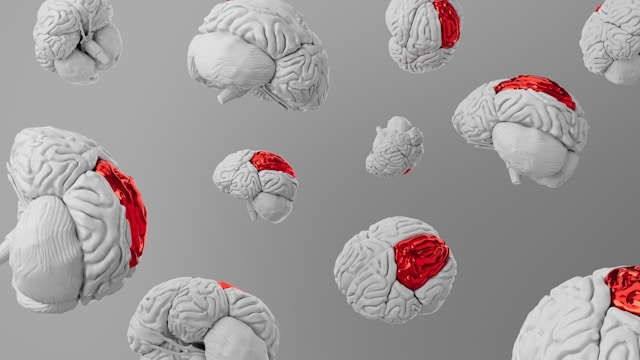The book Recode by Dr. Bredesen focuses on a comprehensive, personalized approach to health optimization, particularly in the context of preventing and reversing cognitive decline. Dr. Dale Bredesen, a renowned neurologist, presents strategies based on the ReCODE (Reversal of Cognitive Decline) protocol that he developed. This approach integrates genetics, lifestyle, nutrition, and environmental factors to enhance cognitive function and overall well-being.
Key Concepts of the ReCODE Protocol
- Personalized Medicine: The ReCODE protocol emphasizes a tailored approach, recognizing that each person’s biochemistry and genetics are unique. This personalized strategy involves a detailed assessment of an individual’s genetic makeup, medical history, lifestyle, and environmental exposures.
- Targeting Multiple Mechanisms: Dr. Bredesen’s method looks at various factors contributing to cognitive decline, including inflammation, insulin resistance, toxin exposure, and hormonal imbalances. By addressing these multiple factors, the protocol aims to provide a more comprehensive solution.
- Genetic Analysis: The protocol includes genetic testing to identify risk factors, such as the presence of the APOE4 allele, which is associated with a higher risk of Alzheimer’s disease. Knowing one’s genetic predispositions can help in customizing preventative or therapeutic interventions.
- Lifestyle Modifications: Recommendations are made for optimizing sleep, diet, exercise, stress management, and other lifestyle factors that significantly impact brain health. For instance, a ketogenic diet, intermittent fasting, and regular physical activity are often suggested to improve cognitive function.
- Nutritional Support: The ReCODE protocol emphasizes the importance of a nutrient-rich diet that supports brain health. This includes essential vitamins, minerals, and omega-3 fatty acids. Nutritional deficiencies are identified and addressed through dietary changes or supplements.
- Detoxification: Addressing environmental toxins is a critical component. The protocol might recommend avoiding certain chemicals, using air and water filters, and employing detoxification strategies to reduce the body’s toxic load.
- Continuous Monitoring and Adjustments: Health optimization under the ReCODE protocol is not a one-time effort but requires ongoing monitoring and adjustments based on changes in one’s health status, lab results, and other factors.
Implementation
- Initial Assessment: This includes comprehensive lab tests, cognitive assessments, and genetic testing to establish a baseline and identify specific areas of concern.
- Personalized Plan: Based on the assessment, a personalized plan is developed, targeting the individual’s unique risk factors and health conditions.
- Ongoing Support: Regular follow-ups with healthcare professionals to monitor progress and adjust the plan as necessary.
Dr. Bredesen’s approach has garnered attention for its potential to not only slow but also reverse cognitive decline in some patients, though it emphasizes that individual results can vary. The ReCODE protocol represents a shift towards personalized, proactive, and preventative medicine in the field of neurology and beyond.
Following Dr. Bredesen’s ReCODE protocol can vary in difficulty depending on several factors, including an individual’s current lifestyle, health status, resources, and commitment to making potentially significant changes. Here’s a breakdown of what might make the plan easy or challenging to follow:
Factors That Can Make the ReCODE Protocol Challenging
-
- Complexity and Comprehensiveness: Multifaceted Approach: The protocol involves many aspects of health, including diet, exercise, sleep, supplements, stress management, and detoxification. This comprehensive approach can be overwhelming, especially for those who are not used to making multiple lifestyle changes simultaneously.
- Personalization Requirement: Since the plan is tailored to an individual’s specific genetic and health profile, it requires detailed testing and a nuanced understanding of one’s health, which can be challenging without professional guidance.
- Need for Consistency and Commitment: Long-term Commitment: The ReCODE protocol is not a quick fix. It requires sustained effort over time, with consistent monitoring and adjustments. Maintaining this level of commitment can be difficult, especially if individuals do not see immediate results.
- Lifestyle Adjustments: Implementing dietary changes like adopting a ketogenic or low-carb diet, practicing intermittent fasting, or integrating regular exercise routines can be challenging for some, particularly those with ingrained habits or busy schedules.
- Access to Resources and Support: Professional Guidance: To follow the protocol correctly, many people will need access to specialized healthcare providers who are familiar with the ReCODE protocol. This may not be readily available in all areas, and it can be costly.
- Financial Considerations: The protocol may involve significant expenses, including the costs of genetic testing, lab work, supplements, specialized foods, and possibly even environmental modifications like water and air filtration systems.
- Dietary and Lifestyle Restrictions: Dietary Changes: Some people may find it difficult to adhere to the dietary recommendations, which often include cutting out sugars, refined carbohydrates, and processed foods while increasing healthy fats and certain vegetables.
- Environmental Toxin Avoidance: Avoiding environmental toxins may require significant lifestyle adjustments, such as changing household products, installing filters, and avoiding certain foods, which can be a logistical and financial burden.
Factors That Can Make the ReCODE Protocol Easier to Follow
-
- Structured and Clear Guidance: Detailed Plan: The protocol provides a structured plan with clear guidelines on various aspects of health, which can make it easier for people who prefer a well-defined regimen to follow.
- Access to Online Resources: There are online communities, resources, and support groups that provide information, share experiences, and offer encouragement, which can help people stay motivated and on track.
- Individualized Approach: Tailored to Individual Needs: Because the protocol is personalized, individuals may find it more relevant and effective, which can increase motivation and adherence. People often feel more compelled to stick to a plan that is specifically designed for them.
- Focus on Root Causes: By targeting the root causes of cognitive decline and other health issues, the protocol can provide noticeable improvements in well-being, which can reinforce adherence.
- Holistic Health Benefits: Comprehensive Health Improvement: Following the protocol can lead to improvements not just in cognitive function but also in overall health, energy levels, and quality of life. These broader benefits can make the effort feel more worthwhile.
- Preventative Focus: For those motivated by preventative health, the protocol’s focus on reducing future disease risk can be a strong motivator to adhere to its guidelines.
Tips for Easing the Implementation
- Start Slowly: Begin with small, manageable changes rather than trying to overhaul your entire lifestyle at once. Gradual implementation can make the process less overwhelming.
- Seek Professional Help: Work with a healthcare provider familiar with the ReCODE protocol to guide you through the process and adjust the plan as needed based on your progress and challenges.
- Build a Support System: Engage family members, friends, or support groups who understand and support your goals. Having a support network can make the journey easier and more enjoyable.
- Focus on Benefits: Keeping track of improvements in health and well-being can help maintain motivation and reinforce the positive impacts of the lifestyle changes.
- Stay Flexible: Be prepared to adjust the plan based on what works best for you, recognizing that each individual’s path to health is unique.
Overall, while the ReCODE protocol can be demanding and requires significant effort and dedication, many people find that the potential benefits to cognitive and overall health make it worthwhile.





